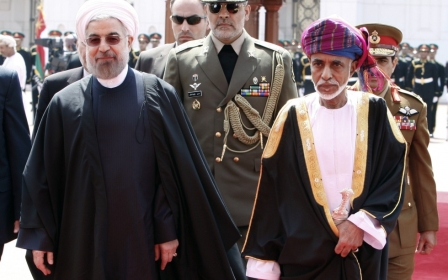Ex-minister jailed for corruption in Oman

A former commerce minister in Oman was sentenced to three years in prison for corruption on Sunday, becoming the most senior government figure to be convicted in a crackdown against graft in the Gulf sultanate.
Mohmmed bin Nasser al-Khusaibi was found guilty of paying bribes totalling 385,000 Omani rial ($1m) to the ex-undersecretary of the Ministry of Transport and Communication to award a contract for an expansion project at Muscat airport to a company in which he was a shareholder.
Muscat’s Court of First Instance fined Khusaibi 800,000 rial ($2m) on top of his three-year prison sentence. Ex-undersecretary Mohammed al-Amri was given a three-year sentence, fined 1.2m riyal ($3.1m) and banned from public office for 30 years.
Fathi Alaaiddin, the non-Omani managing director of the company involved in the bribery case, was sentenced to six months in prison and given a fine of 400,000 riyal ($1m) to be followed by deportation on release.
Dozens of Omanis and expatriates have been convicted of bribery since a crackdown against corruption was launched by the government late last year, but this is the first time a former minister has been given a prison sentence.
Stay informed with MEE's newsletters
Sign up to get the latest alerts, insights and analysis, starting with Turkey Unpacked
A government clampdown on corruption was announced as part of a response to protests in 2011, when demonstrators took to streets across the country to call for improved living conditions, political reforms and the sacking of ministers accused of corruption.
Security services used tear gas and rubber bullets to break up protests, leaving two demonstrators dead, and arrested swathes of people in different towns and villages. Protests died down after the country’s ruler Sultan Qaboos bin Said al-Said announced 50,000 new public sector jobs and a minimum wage for private sector employees.
Human rights groups have accused authorities of torturing political detainees and said this has continued since the protests in 2011. According to a report by the Gulf Centre for Human Rights “torture has become the state’s knee jerk response to political repression”.
Omani officials have not commented on the torture allegations and analysts have said that alleged repression must be tackled in combination with corruption, otherwise further protests could take place.
“The repression has been tough and whilst there are no immediate signs of renewed unrest the structural conditions for protest are there,” said Marc Valeri, an Omani specialist at Exeter University.
The initiative to deal with corruption is picking up pace, however, with local press reporting on Sunday the government is planning to introduce new laws to improve transparency in the public sector.
Al Watan said a team set up by the country’s Shura Council had met with departmental officials to discuss amending tender legislation, aimed at speeding up project implementation and improving the process of awarding contracts.
Middle East Eye delivers independent and unrivalled coverage and analysis of the Middle East, North Africa and beyond. To learn more about republishing this content and the associated fees, please fill out this form. More about MEE can be found here.




